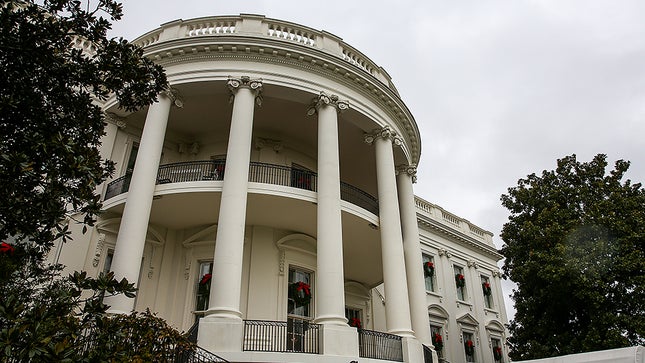
Are the Regulations of the Faith-based Initiative About to Be Modified Again?
The Office of Management and Budget (OMB) recently announced, via its Spring 2021 Unified Agenda of Regulatory and Deregulatory Actions, that the nine major federal agencies with special rules governing federal funding of faith-based organizations are together reviewing the modifications to those rules made by the Trump administration, with the aim of overturning some of the changes. OMB, on behalf of the White House, supervises the federal government’s making of regulations. At some point the various agencies will announce, via the Federal Register, a joint or separate Notices of Proposed Rulemaking with draft amendments to the regulations coupled with explanations of the changes and an invitation for public comment.
The special funding rules are known as Equal Treatment or Equal Opportunity regulations in the various agencies—the Departments of Justice, Agriculture, Education, Health and Human Services, Homeland Security, Housing and Urban Development, Labor, and Veterans Affairs, and the US Agency for International Development—and are based on the Charitable Choice principles first enacted in 1996 as part of federal welfare reform during the Clinton administration. They require federal officials, and state and local officials administering federal funds, to give faith-based organizations the same opportunity to compete for funds as secular organizations, to protect the religious characteristics of those religious organizations, and also to protect the rights of people seeking help from the federally funded organizations.
President George W. Bush and his successors have pushed these principles deep into government practice. After launching the White House Office of Faith-Based and Community Initiatives, President Bush directed various agencies to create counterpart faith-based Centers and to develop regulations based on Charitable Choice. President Barack Obama maintained the Office and Centers under the new name of Faith-Based and Neighborhood Partnerships and subsequently created an Advisory Council, which recommended a significant change in the regulations. In all federally funded services, and not only the few governed by Charitable Choice law, the Council proposed, a person who objects to the religious character of their initial provider has the right to be referred to another provider. For example, a nonreligious mother discovering that the nearby federally funded provider of well-baby services is a Catholic organization might request an alternative and the Catholic organization would have to find the alternative and make the referral. This change was made to the Equal Treatment regulations via a Final Rule published in April 2016.
President Donald Trump, by Executive Order 13831, appointed a White House advisor without recreating the Office, adopted the name for the Advisor and Centers of Faith and Opportunity Initiatives, and directed that the regulations be modified to eliminate the universal referral requirement. Although no referrals had ever been requested, the administration noted that the Obama change made burdens on religious freedom more likely. In the example noted above, the Catholic provider—not the government agency that provides the funding—would be obligated to make the referral even if the only alternative is a Planned Parenthood alternative that performs abortions as well as offering the well-baby care.
When the nine agencies changed the regulations via a Final Rule issued on December 17, 2020, they also modified the requirements for federal funding to qualify as “indirect” funding. “Direct” funding—grants and contracts—involves government officials selecting a provider; because the government must not “establish” religion, the selected provider cannot include religious activities within the federally funded service. Religion can, however, be part of privately funded services offered to the beneficiaries. With “indirect” funding—vouchers, child care certificates, scholarships—the government authorizes the beneficiary to choose a provider and then pays whichever organization is selected. If a religious provider receives funding, it is because of a beneficiary’s choice, not the government’s decision. The provider can integrate religion into the federally funded service; through the “indirect” funding, the government has simply aided the beneficiary’s exercise of religion, just the same as it assists another beneficiary who chooses a secular provider.
The Trump administration’s Final Rule made another important change: it is no longer necessary that there be a secular option among the choices for any given service. Now, as long as there are several providers of the federally funded service, all of the faith-based providers are permitted to integrate religion into the service they offer. One consequence is that any beneficiary convinced that the service ought to be religion-free can only avoid religion by refusing the federally funded assistance.
President Joe Biden reopened the White House Office and returned the Office and Centers’ name to “Faith-Based and Neighborhood Partnerships.” In his Executive Order 14015, he also revoked President Trump’s Executive Order 13831, thus directing a reversal to the change in providers’ required referrals. His Executive Director of the White House Office, Melissa Rogers, is on record opposing some of the Trump administration’s changes to the faith-based funding rules. The OMB’s announcement that the nine agencies are “considering revisions” to the Equal Treatment/Equal Opportunity regulations does not specify which changes will be proposed, but the agencies will likely reverse the two major changes of the Trump administration’s Final Rule.
Will other changes also be made, for example, to require all federally funded service providers not to discriminate on the bases of sexual orientation and gender identity? Stay tuned!
